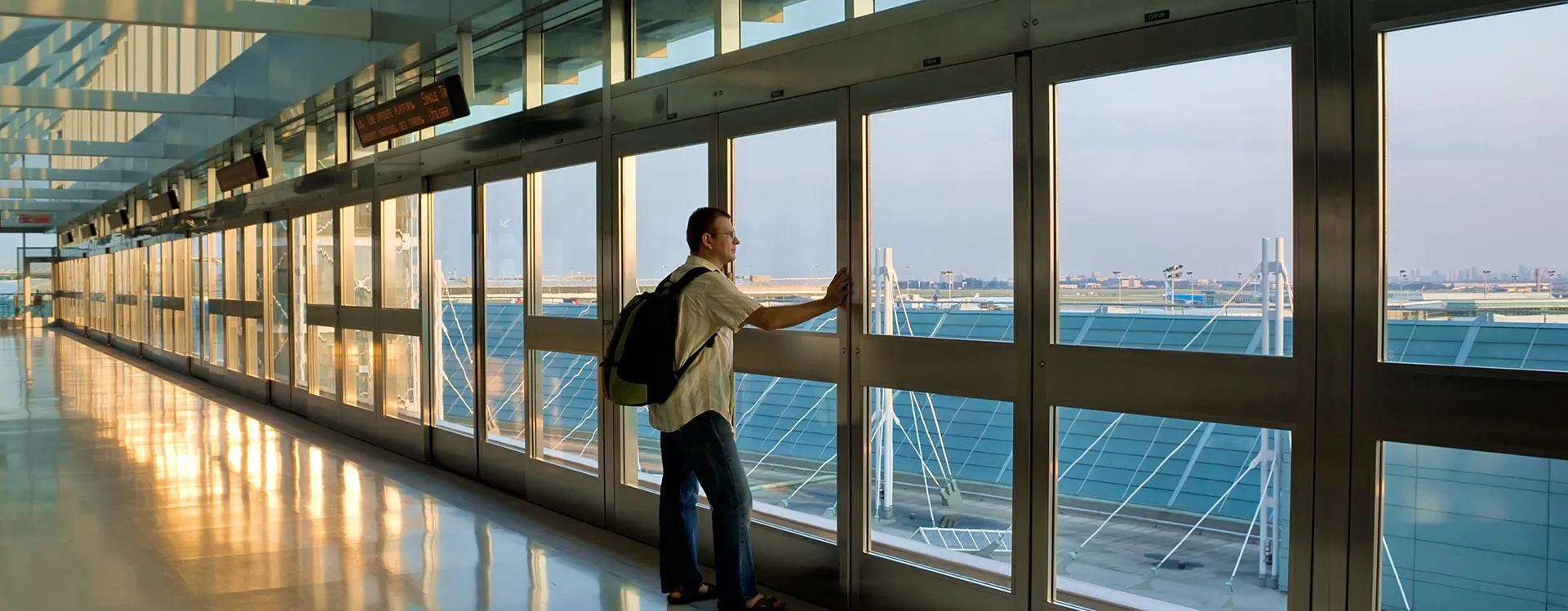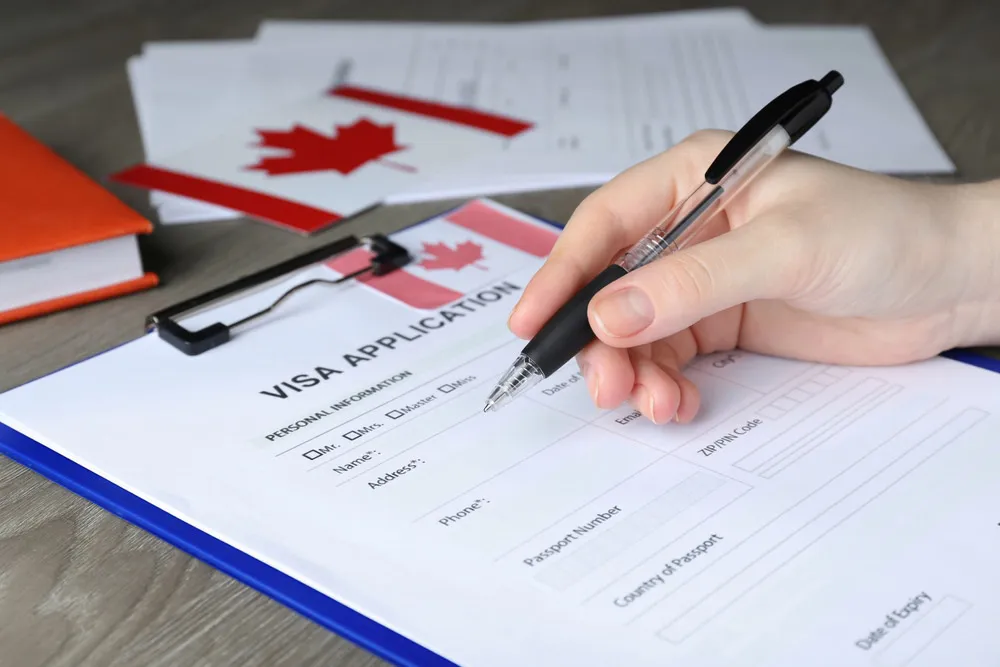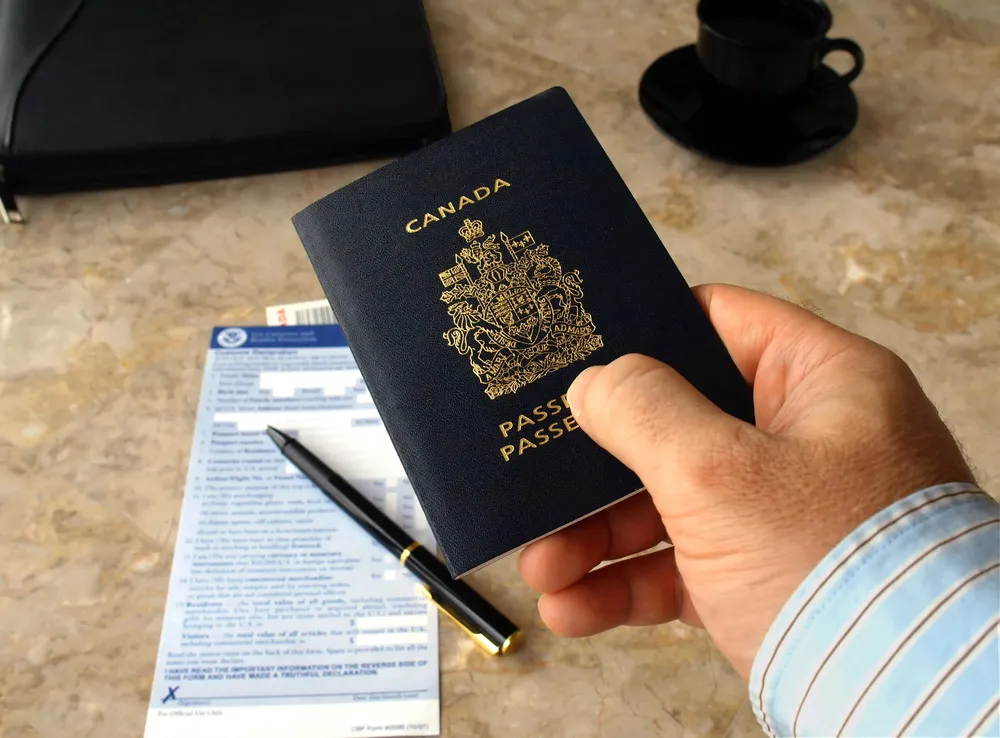Canada Express Entry is an online system for immigration to Canada that manages applications from applicants worldwide, offering a pathway for skilled workers globally to contribute to Canada. Applications for Express Entry can be submitted through three different immigration programs.
The three available programs that Canada Express Entry organizes are the Canadian Experience Class, the Federal Skilled Worker Program, and the Federal Skilled Trades Program. The Canadian Experience Class is for skilled workers who have worked in Canada for at least three (3) years before applying. The Federal Skilled Worker Program is for skilled workers with foreign work experience who meet the education and professional criteria. The Federal Skilled Trades Program is for skilled workers who specialize in a trade and possess valid job offers or qualification certificates. Eligible applicants for any of these three programs can apply for Express Entry.
Canada Express Entry manages applications for permanent residence under the programs mentioned above. The infrastructure of Express Entry is built around a points system called the Comprehensive Ranking System (CRS). Applicants receive points for each eligibility criteria they meet. The top-ranked applicants in the CRS will be nominated to apply for permanent residence through the Express Entry program.
Express Entry Draws
Candidates for the Canada Immigration Express Entry placed in the applicant pool are ranked according to the Comprehensive Ranking System (CRS). Express Entry draws are held to determine which candidates will be invited to apply for permanent residence through one of the three (3) eligible programs.
During Express Entry draws, immigration authorities make essential decisions regarding the Express Entry invitation process. They decide the type of round they will hold, the number of candidates they need to invite and identify the highest-ranking candidates from the eligible applicant pool. They also invite the top-ranking candidates to apply for permanent residence through an Expres Entry program.
There are various types of draws held during the year. The first type is general rounds of invitations. During these draws, they invite top-ranking candidates in the applicant pool eligible for one of the programs managed through Express Entry.
The second type is program-specific rounds of invitations. During these draws, they invite top-ranking candidates eligible for a specific Express Entry program. Under this category, they could hold a round for the candidates eligible for the Provincial Nominee Program (PNP).
Thirdly, they might hold a category-based round of invitations. For this type of draw, they might invite candidates who meet a specific economic goal established by the Minister.
For all draws, candidates must be eligible for at least one of the three (3) programs managed through Express Entry to be put in the pool. Category-based rounds allow for a more economy-focused approach to invitations that add to the general and program-specific rounds.
Each draw, or round of invitations, has a specific set of instructions that candidates must follow. Instructions are posted online at the time of the draw and include the the date and time of the round, the number of invited candidates, the round type (general, program-specific or category-based), the type of immigration program included (for program-specific rounds), and the eligibility for the category (for category-based rounds).

How Express Entry Works
Applying for Express Entry is a straightforward process for applicants who meet the eligibility criteria. First, applicants must verify their eligibility for one of the three programs managed under Canada Express Entry. If they are eligible, they are then advised to check their potential CRS score using the free online tool provided by the Canadian government immigration authorities.
If everything is in order, applicants can proceed with the application process by preparing all the required documents according to the program they are applying to. These documents might include a language test result or proof of education.
Next, applicants will complete their online profile. Applicants must complete the profile accurately and to the best of their abilities. This profile will be evaluated for eligibility. If accepted, their profile will be placed into the Express Entry pool and scored using the CRS system.
Candidates with the highest CRS scores will be invited to apply for permanent residency. They must be selected in a draw. Regular and specific draws are held annually to select the invitees for each Express Entry immigration program. Applicants have 60 days from the invitation date to apply for permanent residency.
The Comprehensive Ranking System (CRS) has a significant impact on the Express Entry application process. The CRS determines which applicants can apply for permanent residency through Express Entry and which cannot. Applicants who achieve a high CRS will be invited to apply for Canadian permanent residency within 60 days.
Eligibility Criteria
Applicants for Canada immigration Express Entry must meet specific eligibility requirements. These eligibility criteria will depend on the immigration program the applicant chooses to apply for. Applicants must verify all eligibility requirements to ensure they will be included in the applicant pool and to see if they might rank high enough in the CRS to be invited to apply for permanent residency.
Federal Skilled Worker Program
For the Federal Skilled Worker Program, applicants must meet the minimum requirements, including age, education, work experience, English or French language skills, adaptability in Canadian society, and a valid job offer. Based on these criteria, they will be issued a score out of 100. The minimum requirements for this program include:
Federal Skilled Trades Program
The eligibility requirements for the Federal Skilled Trades Program are also determined by specific criteria, including skilled trades work experience, the job offer or certificate of qualification, and language test results. The minimum requirements for this program include:
Canadian Experience Class
The eligibility requirements for the Canadian Experience Class include skilled work experience and language results. The detailed minimum requirements for this program include:
Comprehensive Ranking System (CRS)
Canadian Express Entry relies on a points system called the Comprehensive Ranking System (CRS) to rank applicants. The CRS is used to assess and score each applicant’s profile and rank it in the Express Entry pool. This ranking determines the likelihood of being invited to apply for permanent residency through one of the three eligible programs.
The CRS is calculated using factors like age, education, work experience, language proficiency, and ability to adjust to Canadian society. These factors are based on the unique requirements of each program. Therefore, the calculation will be distinct for each program.
Improving Your CRS Score
It is possible to increase one’s CRS score in order to rank higher in the Express Entry pool. Applicants are advised to follow some strategies to increase their score and better position themselves for the Express Entry draw. First, applicants can improve their language skills in either English or French to boost their language test results. Second, they can enhance their education by obtaining a certificate, diploma, or degree from a Canadian secondary or post-secondary academic institution or an equivalent from a foreign institution.
For example, the Federal Skilled Worker Program has an educational requirement. The Federal Skilled Trade Program and Canadian Experience Class programs do not have educational requirements. However, applicants can gain points if they have an accredited certificate or degree from a Canadian institution or an equivalent foreign accreditation.
Third, they might gain more work experience in their field that will be applicable to the program. Some applicants might plan ahead to streamline their skilled work experience so that they meet the requirements of the occupational description in the National Occupational Classification (NOC). Fourth, they can strive to obtain a job offer in Canada prior to applying for Express Entry.
Fifth, obtaining a Provincial Nominee Program nomination is another way to earn more points. Applicants can obtain up to 600 points in the CRS system, increasing their ranking in the Express Entry pool and their chance of being invited to apply for permanent residency.
Finally, if applicable, Express Entry applicants can try to increase their spouse’s CRS score as well through any of the above tactics. This will ensure a greater chance of being invited to apply for permanent residency through one of the eligible immigration programs.

Required Documents
All applicants applying for Express Entry must submit some required documents. These will be required at different stages of the application process and must be valid. The following documents are required for all applicants:
If the applicant is invited to apply for permanent residency after an Express Entry draw, they must upload the following documents and submit their application within 60 days. The required documents for the permanent residency application include:
- Police certificate/background check
- Proof of financial resources
- Birth certificate for applicants declaring dependent children
- Adoption certificate for applicants who declare their dependent child as “adopted”
- Use of Representative Form for applicants working with a representative (if applicable)
- Common-Law Union Form for applicants who have a “common-law” marriage (if applicable)
- Marriage certificate for applicants who declared themselves as “married” for their marital status
- Divorce certificate or legal separation agreement for applicants who declared themselves as “divorced” for their marital status
- Death certificate for applicants who declare themselves as “widowed”
Other documents may be required depending on the applicant’s case and the program they apply to. These are only required if included in the personalized document checklist. These documents will not hinder or help the application, but they may be used to check if you meet the program’s requirements.
- Proof of relationship to relative in Canada
- Photographs to confirm identity
- Documents to confirm aliases (other names used)
- Authority to release personal information to a designated individual form
All documents in a language other than French or English must be translated into French or English. The original and official translation must be uploaded. A certified translator must stamp the translation. Stamps or seals not in English or French should also be translated. An affidavit or letter must be included explaining if a certified translator or another person completed the translation.
It is crucial that all aspects of the application and all required documents be accurate and complete to the best of the applicant’s ability. They must ensure that any official documents and passports are valid before the application is processed.
Application Process
The application process for Canadian Express Entry is straightforward and can be completed in a few steps. Applicants can take the following steps to create their Express Entry profile and enter the invitation draw:
1
Verify eligibility
All applicants must check whether they are eligible for one of the three programs managed under Canada Express Entry. There are two ways to do this. They can either answer a few questions designed to test for eligibility based on minimum requirements, or they can read the requirements of each program and make their decision accordingly.
2
Check the CRS score
- All applicants should check their potential CRS score before submitting their Express Entry profile online. Once the applicant determines that they are eligible for an Express Entry program and submit their profile online, they will receive a ranking according to the CRS.
- The CRS ranks all applicant profiles in the Express Entry pool. The top-ranked applicants will be invited to apply for permanent residence. To be invited, applicants must score higher than the minimum points of their round of invitations.
- There is a free CRS tool for applicants to check the estimate of their score before submitting their profile.
3
Prepare the required documents
All applicants must provide the required documents, such as a language test result or proof of a job offer, to show they are eligible for Express Entry. These documents must be uploaded with their Express Entry profile.
4
Complete the profile
Once all the documents are prepared, applicants will be asked to complete their online profile. Applicants must complete the profile will all detailed personal information. If eligible, the applicant will be accepted into the pool of candidates and receive their official CRS score.
5
Receive an invitation and apply
Candidates with the highest CRS scores will receive invitations to apply. Once the invitation is received, the applicant will have 60 days to submit their residency application. Most applications are processed within six (6) months.
The application process may vary depending on the immigration program and the applicant’s unique case. Applicants must verify the required documents and application process for their program and follow each step carefully to ensure they have the best chance of being nominated for the Express Entry draw.

Processing Times
The processing times for Express Entry immigration applications will vary depending on the complexity of the application and the program. However, most applications can be expected to be processed in around six (6) months.
Invalid documents, non-validated translations, and inaccurate information can lead to delays in the application processing. Applicants should carefully check their application and profile before submitting their application for processing to avoid any unnecessary delays.
Application Fees
After filling out all sections of the online form and uploading the required documents, applicants will receive a list of fees. These fees must be paid on time in order for the application to be processed. The fee list will typically include the processing fee for the main applicant and their dependents, the right of permanent residence fee, and the biometrics fee.
All fees can be paid through the applicant’s online account using a valid debit or credit card. Applicants must ensure they can at least pay their processing fee when submitting their application. However, it’s best to pay all fees upfront to avoid any processing delays.
The fee list is subject to change. The current fee list for Express Entry is as follows:
- Application (including the $850 processing fee and the $515 right of permanent residence fee): $1,365.00
- Application fees (without right of permanent residence fee): $850.00
* These fees apply for applicants who are applying with a spouse or partner as well.
- Including a dependent child: $230.00/per child
If the application is incomplete and a refund is applicable, the processing fee and right of permanent residence fee will be refunded. If the application process has already started, the processing fee will not be refunded.
Most applicants must pay a biometrics fee when they submit their application. Failure to pay these fees could result in application processing delays. After the biometrics fee is paid, the applicant will receive a letter with instructions for giving their biometrics. The biometrics fees usually cover collecting fingerprints and taking a digital photograph in person at a collection center.
Payments must be made through the applicant’s online account. The only circumstances in which an applicant might pay fees another way is if they pay their right of permanent residence fee after applying or if they add a spouse or dependent child to their application due to a marriage or birth.
Common Challenges and Solutions
Applicants to Canada’s Express Entry immigration program may encounter some challenges during the application process. These challenges may include meeting eligibility criteria, achieving language proficiency requirements, and obtaining accurate educational credential assessments.
To address these issues, applicants should start the process early, invest in language preparation courses or tutoring, and complete all documentation carefully. Job offers are not mandatory, although they can increase the applicant’s ranking. Alternatively, applicants can focus on enhancing their profile through educational experience and language skills. Applicants are advised to monitor Express Entry trends and stay proactive with their biometric appointments and medical examinations.
Applicants must be patient and persist through the entire process. Professional advice can be constructive to ensure applicants are well-prepared and their application is completed accurately. This will increase the likelihood of success for the immigration process.
FAQ
The Express Entry program is a points-based immigration system used by the Canadian government to manage and select candidates for permanent residence. It includes three main federal economic immigration categories: the Federal Skilled Worker Program, the Federal Skilled Trades Program, and the Canadian Experience Class.
Eligible candidates create an online profile where they are awarded points based on age, education, work experience, language proficiency, and adaptability. Periodically, the government conducts draws and invites candidates with the highest scores to apply for permanent residence.
Express Entry points are calculated based on the CRS, which assigns points for various factors, including age, education, work experience, language proficiency, and adaptability. The maximum points a candidate can score is 1,200. Points are awarded for factors like a candidate’s age, education, language proficiency, work experience, and additional factors such as a valid job offer or Canadian education. The higher the CRS score, the better the chances of being invited to apply for permanent residence.
While having a job offer can significantly increase a candidate’s chances of receiving an invitation, it is not mandatory for Express Entry. The system awards points for a valid job offer, but candidates without a job offer can still be invited to apply for permanent residence based on their overall CRS score.
The processing time for an Express Entry application varies and depends on several factors, including the specific immigration program, the completeness of the application, and the volume of applications being processed.
Generally, the Immigration Refugees and Citizenship Canada (IRCC) tries to process Express Entry applications within six (6) months. However, variations in processing times may occur based on the complexity of the applicant’s case. Applicants should complete their profiles accurately and provide all required documents to avoid any unnecessary delays.
